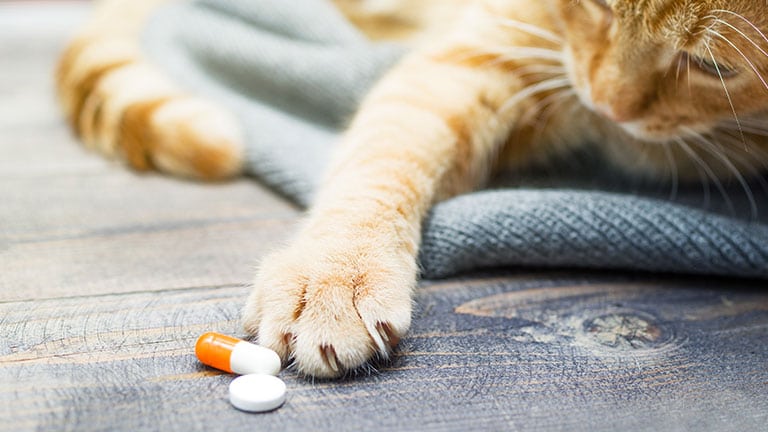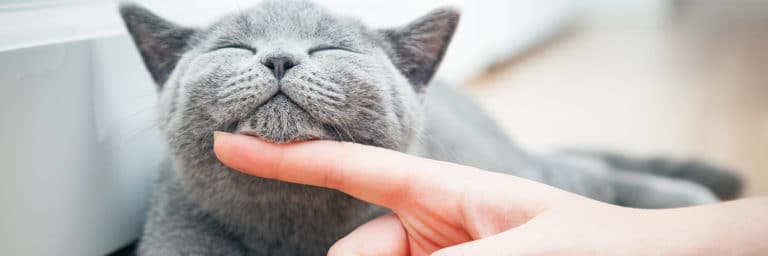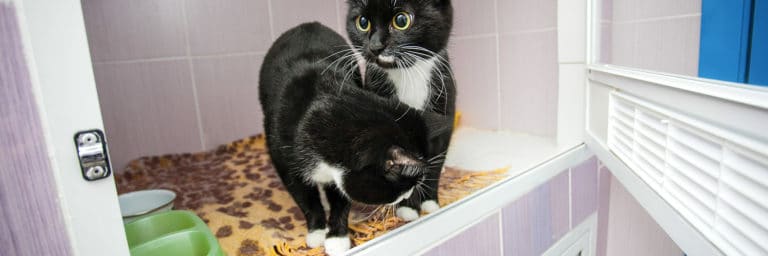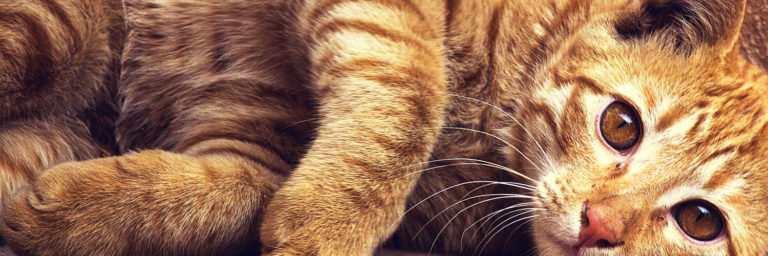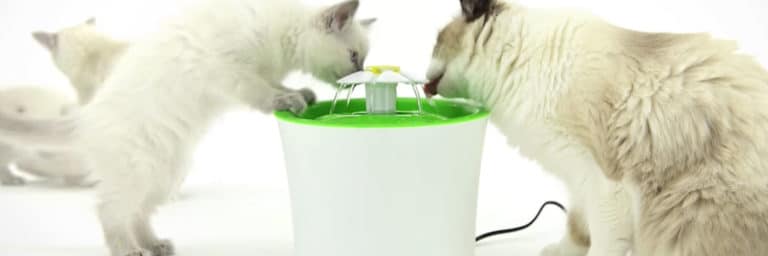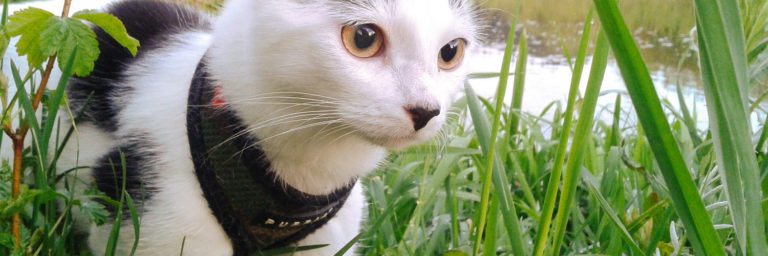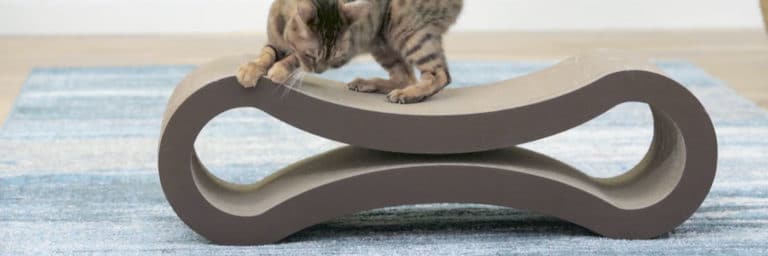Best Cat Vitamins: Top 5 Vitamin Supplements for Cats
Contents of Article
- What is the Best Cat Vitamin Supplement?
- Do you need to give your cat vitamins?
- Let’s learn about the types of vitamins that cats need.
- Best Cat Vitamins: Our Top 5 Recommendations
- Best Gel Vitamin Supplement: Vetoquinol Felovite II Oral Gel Vitamin & Mineral Cat Supplement
- Best Multivitamin Treat: VetriScience NuCat Senior Multivitamin Everyday Health Bite-Sized Cat Chews Review
- Best B-Complex Vitamin for Cats: Rx Vitamins for Pets Amino B-Plex for Dogs & Cats
- Best Vitamin Supplement for Underweight Cats: Tomlyn Nutri-Cal High-Calorie Dietary Cat Supplement Review
- Best Antioxidant Supplement: Vetoquinol Select Antioxidant Tablets Dog & Cat Supplement Review
- Finding the Right Vitamins for Your Cat
All pet owners have the best interest of their pet at heart. It is hard to decide what else we should be doing for our pets in addition to the basics. You might be questioning whether or not your cat needs vitamins and supplements and if so, what kind.
In this article, you’ll learn about which vitamins cats need, which are safe, and how to decide if supplements are right for your cat.
If you are feeding your cat a balanced diet, it is unlikely that he or she has a vitamin deficiency. However, for cats with certain absorption issues or health problems, supplements can be the key to a happy, healthy, and long life.
Keep reading for our roundup of the top 5 best cat vitamins on the market.
What is the Best Cat Vitamin Supplement?
-
- Vetoquinol Felovite II Oral Gel Vitamin & Mineral Cat Supplement
- VetriScience NuCat Senior Multivitamin Everyday Health Bite-Sized Cat Chews Review
- Rx Vitamins for Pets Amino B-Plex for Dogs & Cats
- Tomlyn Nutri-Cal High-Calorie Dietary Cat Supplement Review
- Vetoquinol Select Antioxidant Tablets Dog & Cat Supplement Review
Do you need to give your cat vitamins?
If your cat’s diet meets AAFCO nutrient requirements, it’s unlikely that he has any vitamin deficiencies.
Vitamin supplements are only necessary for cats with deficiencies or absorption problems due to disease, pregnancy, allergies, or a bad diet. Blood testing can reveal these deficiencies and tell you which specific vitamin supplements your cat needs. If you haven’t confirmed a deficiency, it’s best to stick to safe, water-soluble vitamins and everyday multivitamin supplements that won’t harm your cat if overdosed.
Let’s learn about the types of vitamins that cats need.
Remember that, under ideal circumstances, all of these vitamins are either present in a healthy diet or synthesized by the body.
Water-Soluble Vitamins
Because these vitamins dissolve in water and therefore pass out of the body in your cat’s urine, they’re safe and virtually impossible to overdose. At best, these supplements correct deficiencies and improve your cat’s health. At worst, buying them is like pouring money into the litter box.
B-Complex Vitamins
The B-complex vitamins include a group of eight vitamins. Though each vitamin plays a slightly different role in the body, all B vitamins help to convert food into energy. Inadequate B vitamin intake or absorption leads to poor appetite, low energy, itchiness, poor coat condition, and in severe cases, loss of motor control leading to seizures and possible death.
The eight B vitamins are as follows:
-
-
- Vitamin B1, also known as thiamine
- Vitamin B2 or riboflavin
- Vitamin B3, also known as niacin or niacinamide
- Vitamin B5 or pantothenic acid
- Vitamin B6, also called pyridoxine or pyridoxamine
- Vitamin B7 is also called biotin and sometimes called vitamin H
- Vitamin B9 is commonly known as folic acid or folate, also known as vitamin M
- Vitamin B12, which is also known as cyanocobalamin or methylcobalamin
-
Which cats need B-complex supplements?
B vitamin deficiencies are among the most common dietary insufficiencies. A 2014 study found that 13.3% of ninety US canned cat foods had lower thiamine levels than recommended by AAFCO.
Cats with heart and kidney disease need more B vitamins than healthy cats. If your cat is diagnosed with CKD, most veterinarians will recommend B vitamin supplementation as an essential part of treatment.
If you’d like to learn more about B vitamins for cats with kidney disease, read this page from FelineCRF.org.
Vitamin C
Cats don’t naturally require vitamin C in their diet. Instead, their livers create it on their own.
Some, however, argue that most cats’ livers aren’t functioning as they should and that vitamin C supplementation is necessary. Jae Kennedy, co-owner of the Two Crazy Cat Ladies blog and feline health product line, falls into the second group.
She says that “The majority of cats (96%+ domestic cats) are fed highly processed foods that contain toxic fillers, dyes, etc. with poor quality overall ingredients. Because of this diet, many cat’s organs are not producing sufficient amounts of vitamin C to thrive.” Jae adds that “to date we have never heard of vitamin C toxicity in cats, so we do not believe supplementation of this to be harmful in correct doses.”
Which cats need vitamin C supplements?
Vitamin C supplementation may be necessary for cats with liver dysfunction. When given to healthy cats, it’s an antioxidant that attacks free radicals, metabolizes iron, and supports the immune system. Because it slightly acidifies the urine, it may help to reduce the formation of struvite crystals, but it’s not recommended for cats prone to calcium oxalate crystals.
Fat-Soluble Vitamins
If overdosed, these vitamins aren’t flushed out into the litter box. Instead, they build up in your cat’s body and could cause some serious problems.
Vitamin D
Vitamin D regulates the calcium and phosphorus balance in your cat’s body and helps it to retain calcium. These activities promote healthy bone formation along with nerve and muscular control. Excess vitamin D will accumulate in the fat and liver, causing severe health problems.
Remember the Hill’s Pet Nutrition dog food recall in the spring of 2023? The company pulled dozens of products and told customers to watch out for vomiting, loss of appetite, increased thirst, increased urination, excessive drooling, weight loss, and joint issues. Why? Their supplier put too much vitamin D in the premix.
Which cats need vitamin D supplements?
Very few cats require vitamin D supplementation. If your cat is consuming a properly-balanced diet, he’s probably getting all the vitamin D he needs.
Vitamin A
While omnivorous and herbivorous animals synthesize this vitamin from beta-carotene in plants, cats require vitamin A from animal products. An animal’s liver contains the most abundant stores of vitamin A, where it exists in a preformed state called retinyl palmitate.
Vitamin A is essential for vision, skin, and coat health, plus it has antioxidant properties that help to defend the body from disease. If your cat consumes too much vitamin A, he could become ill, exhibiting symptoms ranging from lethargy to skin inflammation. Vitamin A overdose, however, is rare and would require high doses over a long period of time.
Which cats need vitamin A supplements?
Vitamin A deficiency appears to be rare. Few cats require supplementation.
Vitamin E
Vitamin E is naturally found in plant fats and in the liver and fatty tissue of animals. It’s involved in fat metabolism, cell respiration, and the formation of cell membranes. Deficiency in this vitamin causes cellular damage throughout the body. Though it’s not a good idea to load your cat up with gross amounts of vitamin E, it appears to be safe even when administered in large quantities.
Which cats need vitamin E supplements?
Vitamin E supplements can help to keep your cat’s skin and coat healthy. Some recommend it as a cold-weather supplement to prevent wintertime dryness.
Vitamin K
This vitamin helps to support healthy blood functioning, most notably including blood clotting.
Vitamin K deficiencies are not common and, in cats, seldom result from dietary problems. Instead, most vitamin K deficiencies are the result of Warfarin toxicosis, which could occur if your cat eats rat poison. This deficiency leads to internal hemorrhaging, anemia, and, possibly, death.
Which cats need vitamin K supplements?
Cats who have eaten rat poison or have vitamin K deficiencies for any other reason will need vitamin K therapy for a week or more. Otherwise, vitamin K supplements outside of standard dietary fortification aren’t necessary or considered helpful.
Best Cat Vitamins: Our Top 5 Recommendations
Below are our top picks for the best cat vitamins. Many are vet-recommended and all are top-rated products with reputations for safety and effectiveness.
Best Gel Vitamin Supplement: Vetoquinol Felovite II Oral Gel Vitamin & Mineral Cat Supplement
This highly-rated gel multivitamin is easy to administer and contains a range of important vitamins, along with antioxidants, probiotics, omega-3s, and omega-6 fatty acids.
Key ingredients include 0.9 mg thiamine, 8 IU vitamin E, and 5.3 mcg vitamin B12 per teaspoon.
The active ingredients are set in a thick gel made from corn syrup, malt syrup, soybean oil, and fish solubles as a source of flavor. Because it’s loaded with sugar, this gel isn’t the best choice for cats with diabetes or otherwise on a strict low-carbohydrate diet.
This product is vet-recommended and has a good reputation among buyers. Most customers speak highly of it, though a few say that their cats refused to eat the gel and others think it’s too expensive.
Pros
-
-
- Highly-rated and recommended by veterinarians
- Contains probiotics for overall health
- Supplemented with vitamins, minerals, and taurine
- Highly palatable
-
Cons
-
-
- Packed with sugar
-
Best Multivitamin Treat: VetriScience NuCat Senior Multivitamin Everyday Health Bite-Sized Cat Chews Review
This multivitamin is sold by a well-regarded brand with a reputation for safety and quality.
Each of these fish-flavored treats contains amino acids, vitamins, minerals, and a touch of EPA and DHA from fish oil. One treat contains 0.67 mg of vitamin B1—more than the daily requirement for health, 5 mg of vitamin C, and 500 IU of vitamin A, among other valuable vitamins.
Therapeutic treats are notoriously hit-or-miss. Sometimes cats love them. Other times they’re as dry and unappealing as a pill. Though they don’t seem to get the same reception as Temptations or bonito flakes, these treats appear to go over well with most cats.
Note that these treats are high in carbohydrates with oat flour the first ingredient. They’re not appropriate for cats with diabetes or those on a strict low-carbohydrate regimen. If you want to avoid this starchy formulation, you might try Vetriscience’s NuCat chewable multivitamin tablets instead.
Pros
-
-
- Contains a mix of antioxidants, B-complex vitamins, and essential fatty acids
- Most cats seem to like the treats’ flavor
- Clinically-proven formula
- Affordable
-
Cons
-
-
- The chews tend to crumble in the bag
-
Best B-Complex Vitamin for Cats: Rx Vitamins for Pets Amino B-Plex for Dogs & Cats
This liquid supplement contains a blend of B vitamins with amino acids and potassium, a triad known to reduce fatigue, increase appetite, and improve general wellbeing.
It’s popular among people with sick cats. Reviewers mention chronic kidney disease, diarrhea, feline leukemia virus, and pancreatitis. Most reviewers say it helped to improve their cats’ appetites and boosted their energy.
In addition to the amino acid blend, each 2 ml serving provides 3.34 mg potassium, 1 mg vitamins B1, B2, and B6, 56 mcg iron, and 2 mcg vitamin B12. All are generous therapeutic doses appropriate for geriatric and sick cats.
The active ingredients are set in a liquid solution of water with fructose, natural bacon and liver flavor, potassium sorbate, and xanthan gum.
It’s recommended by veterinarians and appears to be safe, palatable, and effective.
Pros
-
-
- Highly-rated and recommended by veterinarians
- Appears to help sick cats
- Highly palatable
-
Cons
-
-
- None
-
Best Vitamin Supplement for Underweight Cats: Tomlyn Nutri-Cal High-Calorie Dietary Cat Supplement Review
If you have an underweight or sick cat who needs something that’s easy-to-eat and packed with calories, you might try this gel supplement.
The gel is a thick concoction of syrups, flavors, and supplements. Each teaspoon contains a generous dose of B vitamins, vitamin A, omega-3 fatty acids, taurine, and more. Most importantly for underweight kitties, a teaspoon has 25 calories—over 10% of the average cat’s daily requirement.
The gel is veterinarian-recommended and sold by a well-regarded brand. It gets consistently positive reviews from customers, almost all of whom agree that the gel is delicious and effective. One reviewer said that the gel helped their 16-year-old cat gain some weight and helped their semi-feral warm up to being petted.
Pros
-
-
- Highly-rated and recommended by veterinarians
- Fortified with essential fatty acids, amino acids, and vitamins
- Tastes delicious
-
Cons
-
-
- High in sugar
-
Best Antioxidant Supplement: Vetoquinol Select Antioxidant Tablets Dog & Cat Supplement Review
If you’re interested in a supplement that can fight free radicals and which may help to prevent disease, you might consider these antioxidant tablets from Vetoquinol.
The first ingredient is a vitamin-esque sugar alcohol called inositol. Together with choline, inositol helps to build cell membranes and plays a part in nerve conduction. The supplement also contains vitamin A, choline, vitamin E, vitamin C, folic acid, and biotin, all of which support overall health.
The supplement has earned the National Animal Supplement Council (NASC) seal of approval. This organization subjects products to an independent quality audit in order to earn its seal of approval, helping to create a standard of quality in an otherwise erratic, minimally-regulated market. You can learn more about the NASC quality seal here.
Pros
-
-
- Contains beneficial antioxidants, vitamins, and minerals
- Safe for both cats and dogs
- Palatable compared to other tablets
-
Cons
-
-
- Contains artificial flavors
-
Finding the Right Vitamins for Your Cat
Again, vitamin supplementation is individualized and personal. One cat’s cure could be another cat’s poison. Dosages, duration of administration, and the types of products you use will ultimately hinge on countless aspects of your cat’s unique personality, health status, and dietary background.
If you want to give your cat something extra just in case his diet doesn’t provide everything he needs, it’s best to choose a supplement that focuses on safe, water-soluble vitamins like B-complex vitamins and vitamin C. The best supplements combine vitamins with other beneficial ingredients, including essential fatty acids, probiotics, and effective nutraceuticals.
If you suspect that your cat is suffering from deficiencies or health issues, your first task is to confirm the problem with a blood test and to talk to your veterinarian about the next steps. After that, it’s time to shop intelligently.
The world of cat health supplements is full of overzealous marketing, so you need to be ultra-vigilant. Do your research, look for clinically-tested, highly-effective products, and take a critical eye to those 5-star reviews. Use a tool like FakeSpot.com to identify deceptive review patterns and question every claim the seller makes.
Vitamin supplements can be a beautiful complement to a healthy diet or a lifesaver for an unwell cat, but you must think carefully, do your research, and consider your cat’s needs before starting him on a vitamin regimen.

